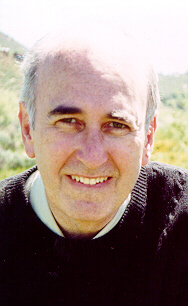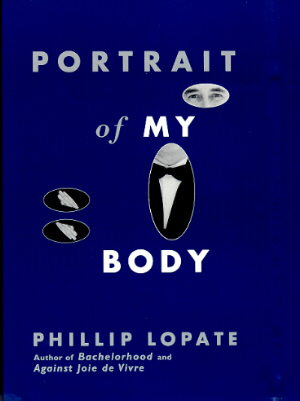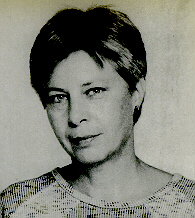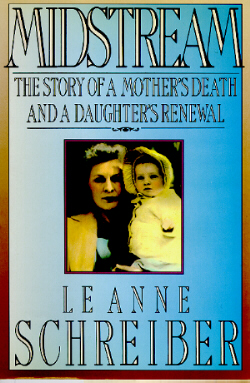 Phillip Lopate is the author of three essay collections, Bachelorhood (1981), Against Joie de Vivre (1989), and Portrait of My Body (1996). He also has published two novels, two poetry collections, a memoir of his teaching experiences, and has edited the anthology The Art of the Personal Essay (1994). He currently holds the Adams Chair at Hofstra University, where he is a Professor of English.
Phillip Lopate is the author of three essay collections, Bachelorhood (1981), Against Joie de Vivre (1989), and Portrait of My Body (1996). He also has published two novels, two poetry collections, a memoir of his teaching experiences, and has edited the anthology The Art of the Personal Essay (1994). He currently holds the Adams Chair at Hofstra University, where he is a Professor of English.
"Phillip Lopate is one of our few essential essayists. He registers with accuracy and tact
the voice of a man of deep human impulse living in a civilization on the wane. His
fearlessness is tonic, his candor is straight gin. "
-Sven Birkerts
Widely considered one of the foremost American essayists, Phillip Lopate has championed that commercially maligned form, and helped to bring about a resurgence of the essay, both through his own prized collections and his acclaimed anthology, The Art of the Personal Essay. With PORTRAIT OF MY BODY (Anchor, September 5, 1996), the final volume of a trilogy that began with Bachelorhood and Against Joie de Vivre, it is now possible to see what an ambitious and unique project Lopate has sustained for the past eighteen years. And why he has been praised by fellow practitioners Sven Bickerts, as "one of our few essential essayists." Edward Hoagland, as "a heart-rich skeptic ... fastidious in dissent." Richard Rodriguez, as "the great investigator of normalcy" who "moves us toward the mystery and the shadows at the center of ordinary life."
In what has been called the Age of Memoir, Lopate's interconnected personal essays are a salutary alternate model of how to write memoir-how to bring alive the author's experiences and ideas-without succumbing to the trend of fashioning a life into a "victim/addiction" narrative. Daily life, harrowing experiences, the resources and cranky limits of a self striving for self-awareness are all examined in the characteristic Lopate manner of wry humor and breathtaking frankness.
The amusingly honest title essay, "Portrait of My Body," speaks to the embarrassed, vain and stoical feelings a male animal can have about his physical equipment. Several pieces comment on the perplexities of relations among singles,  including the bittersweet reminiscence of a failed romance ("Detachment and Passion') and the decision to take the long-delayed plunge after failing in love ("On Leaving Bachelorhood"). Turning his analytical powers on others, he portrays his former colleague Donald Barthelme ("The Dead Father") in a piece that gets to the heart of the literary life. Other essays begin with an ambivalence toward a widely held piety ("Resistance to the Holocaust," "Terror of Mentors") which is then either worked through or retained. Lopate's love of film ("Confessions of a Shusher...... The Movies and Spiritual Life") and cities ("Memories of Greenwich Village") is enthusiastically celebrated. An unforgettable novella-length portrait of the author's eccentric, solipsistic, aged father, a proudly self-proclaimed failure, is the centerpiece of a suite of essays on fathers and father figures. The book ends with the author's own introduction to fatherhood, as a witness to the birth of his daughter ("Delivering Lily").
including the bittersweet reminiscence of a failed romance ("Detachment and Passion') and the decision to take the long-delayed plunge after failing in love ("On Leaving Bachelorhood"). Turning his analytical powers on others, he portrays his former colleague Donald Barthelme ("The Dead Father") in a piece that gets to the heart of the literary life. Other essays begin with an ambivalence toward a widely held piety ("Resistance to the Holocaust," "Terror of Mentors") which is then either worked through or retained. Lopate's love of film ("Confessions of a Shusher...... The Movies and Spiritual Life") and cities ("Memories of Greenwich Village") is enthusiastically celebrated. An unforgettable novella-length portrait of the author's eccentric, solipsistic, aged father, a proudly self-proclaimed failure, is the centerpiece of a suite of essays on fathers and father figures. The book ends with the author's own introduction to fatherhood, as a witness to the birth of his daughter ("Delivering Lily").
A book that will engage readers with its conversational eloquence, skeptical intelligence, candor, and mischief, PORTRAIT OF MY BODY is a captivating work of literary nonfiction.
ABOUT THE AUTHOR
Phillip Lopate is the author of two earlier essay collections: Against Joie de Vivre and Bachelorhood; two novels, The Rug Merchant and Confessions of Summer; and an educational classic about his teaching experiences, Being with Children. He is the editor of The Art of the Personal Essay. His works have appeared in Best American Essays, The Paris Review, Pushcart Prize Annuals, and many other publications. A recipient of Guggenheim and National Endowment for the Arts fellowships, he lives in Brooklyn New York, and is Adams Professor of the Humanities at Hofstra University.
FROM PUBLISHERS WEEKLY
PORTRAIT OF MY BODY
Phillip Lopate
Veteran essayist Lopate (Bachelorhood) is known as a deft and honest deliver into the self, and most of the 13 essays in this collection display those virtues. A remembrance of his former colleague, Donald Barthelme, whose "physical solidity" contrasted with his writing's "filigreed drollness," leads Lopate to worry about the unbridged distances in their friendship. Lopate acknowledges that his insecure writer's ego once precluded acceptance of mentors; now, in middle age, he can write feelingly about his closemouthed, melancholy father and affectionately about his friend, the late critic Anatole Broyard. While some efforts that stray from the familiar are ephemeral (e.g., on "shushing" at theaters), this Jew�s qualms at the brook-no-questions cultural rhetoric of the Holocaust are thought-provoking. But the book's most satisfying chapters reveal Lopate, the longtime bachelor, settling into domesticity. He finds himself musing, more fondly than ever, on an exlover with whom his relationship equalized after they parted and then reflects on the delighted surprise of finally finding his partner for life. With the wryly analytical eye that permits distance, he goes on to describe his "unwilling empathy" when attending his daughter's birth. (Aug.)


 Approaching the age of forty, Le Anne Schreiber decided to leave prestige, power, pressure, and the city behind. She had been the first female editor of The New York Times sports section, then deputy editor of The New York Times Book Review. She had seen from the inside many of the worlds newly opened to women in the last two decades. Now she wanted a life in which there was space for thinking, maybe for writing -a life in which nature might play a larger role. When she had moved to a house in a rural hamlet in the Hudson River Valley, found the ideal trout stream, and mastered the art of the cast, she learned that her mother had pancreatic cancer.
Approaching the age of forty, Le Anne Schreiber decided to leave prestige, power, pressure, and the city behind. She had been the first female editor of The New York Times sports section, then deputy editor of The New York Times Book Review. She had seen from the inside many of the worlds newly opened to women in the last two decades. Now she wanted a life in which there was space for thinking, maybe for writing -a life in which nature might play a larger role. When she had moved to a house in a rural hamlet in the Hudson River Valley, found the ideal trout stream, and mastered the art of the cast, she learned that her mother had pancreatic cancer. observations of nature and her mother's demise the same precision, wonder, tenderness, and occasional outrage -at her own inadequacies and those of her family, at the misinformation or lack of communication from doctors, at the secrets families try to keep. Schreiber writes of humor and hope, as well as anger and despair. She learned how to protect her mother's pride, to conscript some humanity from the medical profession, and to honor the path she had chosen as well as the one forced upon her.
observations of nature and her mother's demise the same precision, wonder, tenderness, and occasional outrage -at her own inadequacies and those of her family, at the misinformation or lack of communication from doctors, at the secrets families try to keep. Schreiber writes of humor and hope, as well as anger and despair. She learned how to protect her mother's pride, to conscript some humanity from the medical profession, and to honor the path she had chosen as well as the one forced upon her.